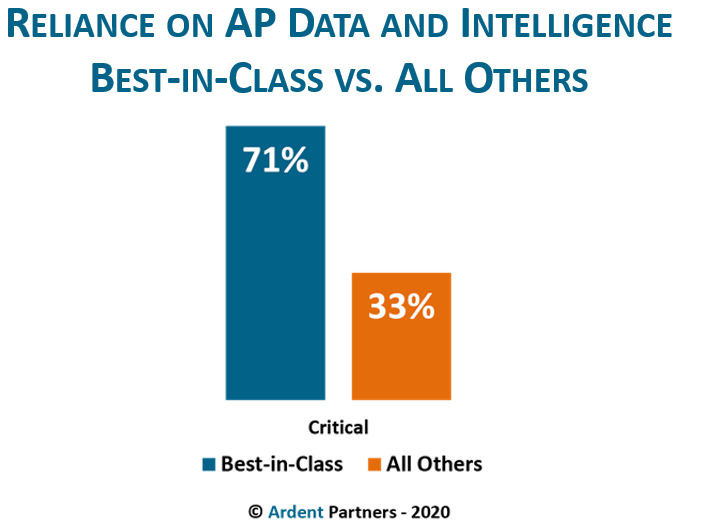Businesses and consumers today are fully engulfed by technology and the data it creates and captures. The same holds true for AP departments across the globe. Accounts payable’s “Big Data” has the potential to become the next major force and catalyst for the profession. In fact, over the next few years, Ardent Partners predicts that a new type of intelligence will emerge from this data that enables AP teams and their key partners to view operations differently. By doing so it will force these same groups to develop new strategies and approaches to how they operate.
What started as the “Big Data” movement has morphed into the so-called “age of intelligence,” an era when business leaders regularly rely on data to fuel better enterprise decision-making. Leading organizations understand the value of the data residing in AP, and are implementing the necessary tools to harness the knowledge that has been previously unavailable. As shown in the figure below, taken from Ardent Partner’s State of Accounts Payable 2020 market research report, the vast majority of Best-in-Class AP teams deem data and intelligence as “critical” to overall operations.

What do some AP departments know that others don’t? The Best-in-Class understand that data is a fundamental component of any modern business, and according Ardent’s research this year, a whopping 97% of Best-in-Class enterprises state that data and intelligence is an important or critical attribute of how to structure the AP function. Fusing financial data (related to both invoices and payments) into how AP operates can go a long way in providing actionable intelligence to the CFO and other key stakeholders to analyze organizational spend and develop a proactive supplier payment strategy that can influence working capital, as well as supplier relationships. In the current period of business disruption, it is critical that executive team leaders have a proper understanding of the relative financial health of the greater organization. Having access to actionable knowledge previously locked away in AP can be a game-changer.



